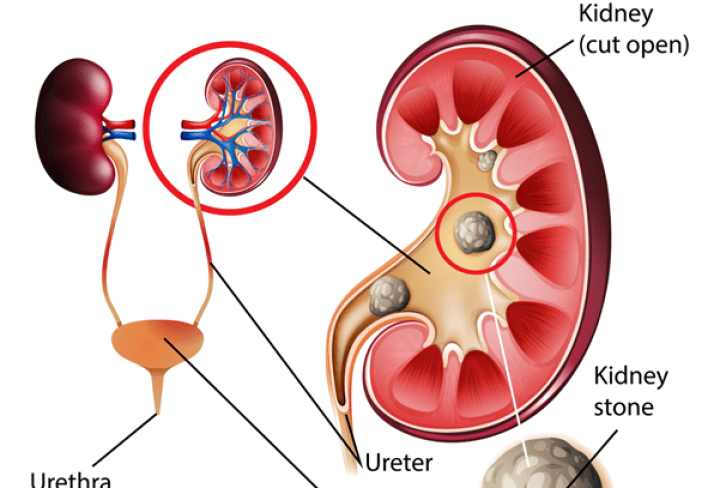Kidney stones can be a painful and uncomfortable experience for anyone who suffers from them. Kidney stones are small, hard mineral deposits that form in the kidneys and can cause a range of symptoms, from mild discomfort to excruciating pain. In this blog, we will explore the causes, symptoms, and treatment options for kidney stones.
Causes of Kidney Stones
Kidney stones can form when urine contains too much of certain substances, such as calcium, oxalate, and uric acid, that can stick together and form crystals. These crystals can then grow and form larger stones. Some factors that can contribute to kidney stone formation include:
- Dehydration: When the body doesn’t have enough fluids, urine becomes more concentrated, making it easier for minerals to form crystals and stick together.
- Diet: Eating a diet high in salt, sugar, and animal protein can increase the risk of kidney stone formation.
- Medical Conditions: Certain medical conditions, such as hyperparathyroidism and Crohn’s disease, can increase the risk of kidney stones.
- Family History: A family history of kidney stones can increase the likelihood of developing them.
Symptoms of Kidney Stones
Kidney stones can cause a range of symptoms, from mild to severe. Some common symptoms of kidney stones include:
- Pain: The most common symptom of kidney stones is severe pain in the back, side, or lower abdomen. The pain may come and go in waves and can be accompanied by nausea and vomiting.
- Blood in Urine: Kidney stones can cause blood to appear in the urine, making it pink or red.
- Difficulty Urinating: Kidney stones can block the flow of urine, causing difficulty and pain during urination.
- Fever and Chills: If a kidney stone causes an infection, fever and chills may occur.
Treatment Options for Kidney Stones
Treatment for kidney stones depends on the size and location of the stones, as well as the severity of the symptoms. Some treatment options include:
- Drinking Water: Drinking plenty of water can help flush out small kidney stones and prevent new ones from forming.
- Pain Medication: Over-the-counter pain medication, such as ibuprofen and acetaminophen, can help relieve the pain associated with kidney stones.
- Medications to Relax the Ureter: In some cases, medications can be prescribed to help relax the ureter and make it easier for the stone to pass.
- Extracorporeal Shock Wave Lithotripsy (ESWL): ESWL is a non-invasive procedure that uses shock waves to break up kidney stones into smaller pieces, making them easier to pass.
- Ureteroscopy: Ureteroscopy is a minimally invasive procedure that involves using a small scope to remove the stone from the ureter.
- Percutaneous Nephrolithotomy: Percutaneous nephrolithotomy is a surgical procedure that involves making a small incision in the back and removing the kidney stone directly.
Preventing Kidney Stones
While kidney stones can be a painful experience, there are steps that can be taken to prevent their formation. Some prevention strategies include:
- Staying Hydrated: Drinking plenty of water and other fluids can help prevent the concentration of urine and reduce the risk of kidney stone formation.
- Eating a Healthy Diet: Eating a diet low in salt, sugar, and animal protein and high in fruits, vegetables, and whole grains can help prevent kidney stone formation.
- Taking Medications: In some cases, medications may be prescribed to prevent the formation of kidney stones.
- Regular Follow-up: Regular follow-up with a healthcare provider can help monitor kidney function and identify potential issues before they become more serious.

